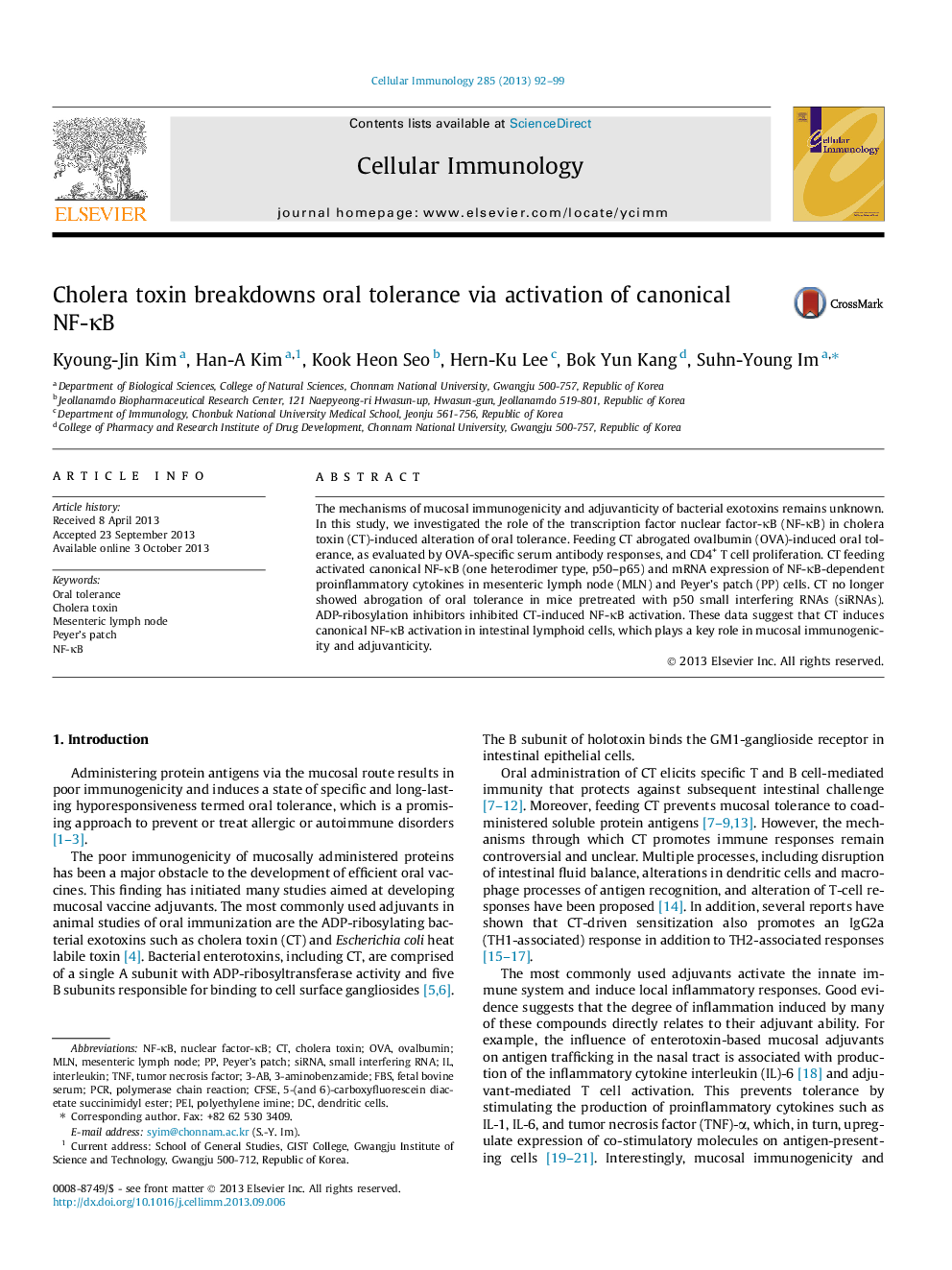| Article ID | Journal | Published Year | Pages | File Type |
|---|---|---|---|---|
| 2167177 | Cellular Immunology | 2013 | 8 Pages |
•Feeding of cholera toxin (CT) abrogated OVA-induced oral tolerance.•CT feeding activated canonical NF-κB (p50–p65) in both MLN and PP cells.•p50 siRNAs abrogated CT-induced oral tolerance.•ADP-ribosylation inhibitors inhibited CT-induced canonical NF-κB activation.
The mechanisms of mucosal immunogenicity and adjuvanticity of bacterial exotoxins remains unknown. In this study, we investigated the role of the transcription factor nuclear factor-κB (NF-κB) in cholera toxin (CT)-induced alteration of oral tolerance. Feeding CT abrogated ovalbumin (OVA)-induced oral tolerance, as evaluated by OVA-specific serum antibody responses, and CD4+ T cell proliferation. CT feeding activated canonical NF-κB (one heterodimer type, p50–p65) and mRNA expression of NF-κB-dependent proinflammatory cytokines in mesenteric lymph node (MLN) and Peyer’s patch (PP) cells. CT no longer showed abrogation of oral tolerance in mice pretreated with p50 small interfering RNAs (siRNAs). ADP-ribosylation inhibitors inhibited CT-induced NF-κB activation. These data suggest that CT induces canonical NF-κB activation in intestinal lymphoid cells, which plays a key role in mucosal immunogenicity and adjuvanticity.
